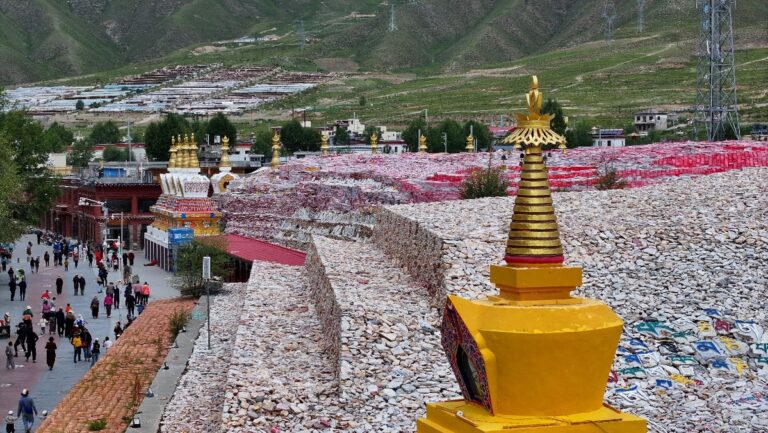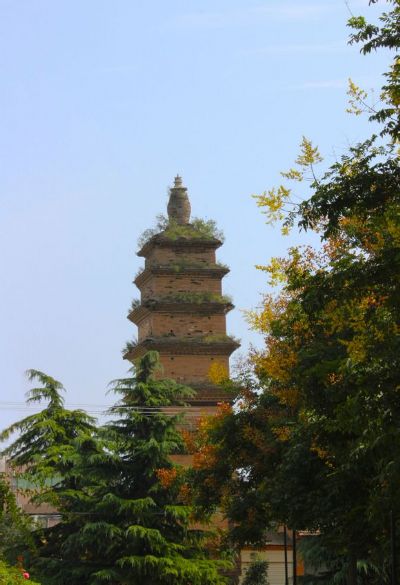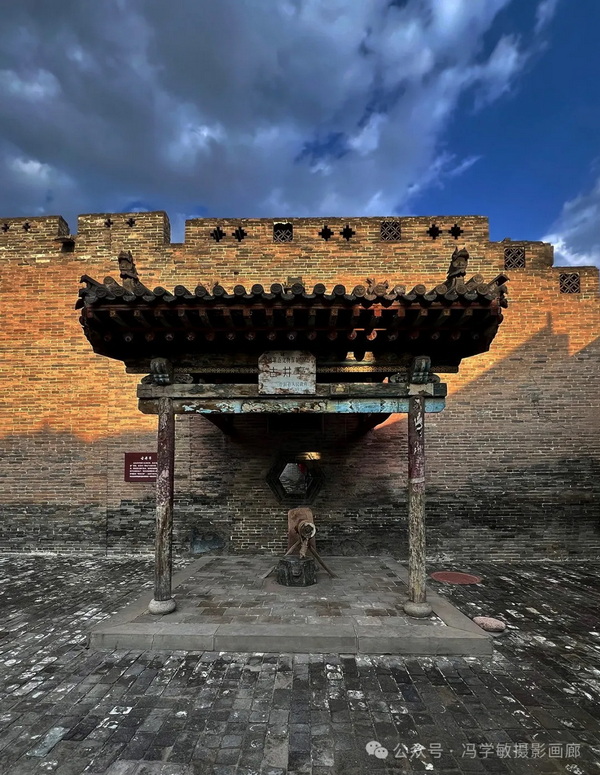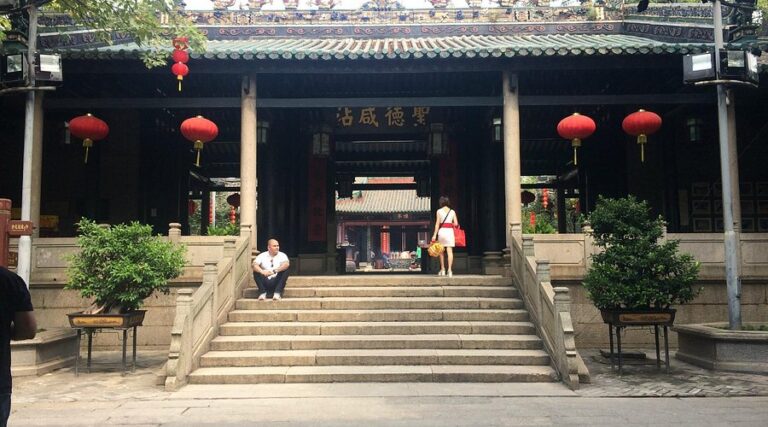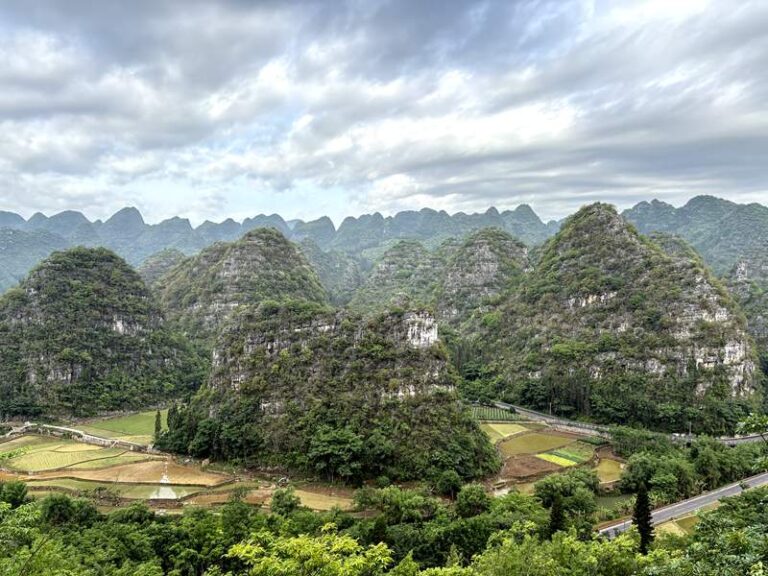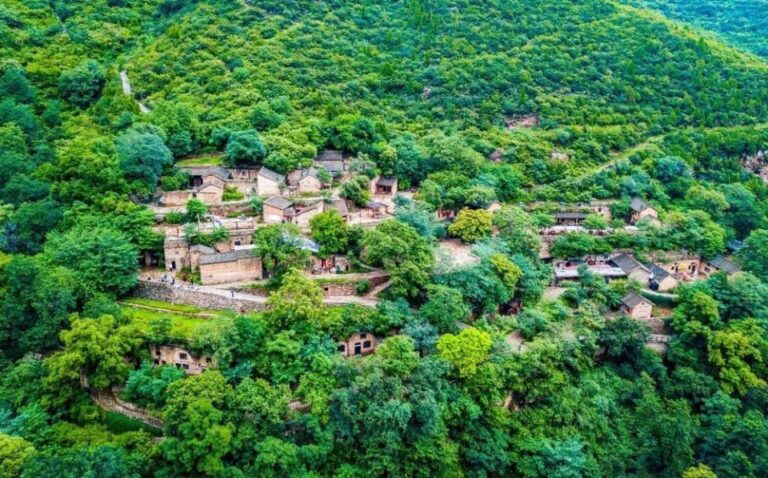A Traveler’s Guide to Xiangtan: Experience the Wonders of Pengdehuai Guju
An Essential Guide to Visiting Xiangtan Pengdehuai Guju
In This Guide
- An Essential Guide to Visiting Xiangtan Pengdehuai Guju
- The Rich History of Xiangtan Pengdehuai Guju
- Main Highlights: What to See at Xiangtan Pengdehuai Guju
- Planning Your Visit: A Practical Guide
- Tickets, Hours, and Booking
- How to Get There
- Local Cuisine and Accommodation
- Frequently Asked Questions
- Final Thoughts on Your Trip
Nestled in the picturesque landscape of Xiangtan County, the Xiangtan Pengdehuai Guju (彭德怀故居) stands as a poignant tribute to one of China’s most prominent military leaders and revolutionary figures, Marshal Peng Dehuai. This former residence, built in 1925, is not just a historical site; it encapsulates the essence of a transformative era in Chinese history. As you approach the quaint, traditional brick-and-tile structure, you can feel the weight of history enveloping you, transporting you back to the early days of the Chinese revolution.
The residence, often referred to as “San Hua Tang,” showcases the characteristic architectural style of Jiangnan, with its elegant white walls and gray tiles, all nestled against the backdrop of the lush Wu Mountain. This harmonious setting reflects the deep connection between nature and culture that defines the region. Within these walls, Peng Dehuai spent crucial years of his life, from his time as a troop leader in the Xiang Army to his later involvement in significant military campaigns.
Visitors to the site can explore the beautifully preserved interiors, which have been meticulously restored to maintain their historical integrity. The adjacent Peng Dehuai Memorial Hall further enriches the experience, offering a comprehensive narrative of his life through captivating displays, photographs, and artifacts. Each exhibit serves as a testament to his indomitable spirit and contributions to the nation, inviting guests to delve deeper into the legacy of a man whose impact is still felt today.
A visit to Xiangtan Pengdehuai Guju is more than a journey through history; it is an opportunity to reflect on the sacrifices made for the ideals of revolution and the enduring quest for justice. Whether you’re a history enthusiast or simply seeking a deeper understanding of China’s past, this site promises an enriching experience that resonates with the complexities of human endeavor.
The Rich History of Xiangtan Pengdehuai Guju
Nestled in the serene landscape of Xiangtan County in Hunan Province, Xiangtan Pengdehuai Guju (彭德怀故居) serves as the former residence of one of China’s most prominent military leaders, Marshal Peng Dehuai. Born in 1898, Peng rose to prominence during pivotal moments in Chinese history, particularly as a key figure in the Chinese Civil War and the Korean War. His legacy is deeply intertwined with the founding and consolidation of the People’s Republic of China.
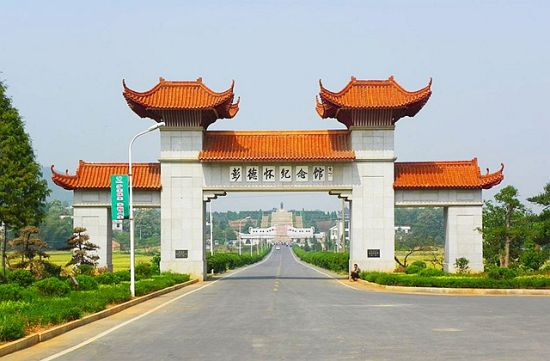
Xiangtan Pengdehuai Guju.
Construction of the residence began in 1925 when Peng was serving as a commander in the Xiang Army. This house, characterized by its traditional Jiangnan architectural style, features a brick-and-wood structure with whitewashed walls and gray-tiled roofs. It not only reflects the cultural aesthetics of the region but also embodies the humble beginnings of a man who would play a significant role in shaping modern China. The residence spans an area of 2,490 square meters, with the main building occupying 350 square meters, making it a quintessential example of a typical rural dwelling from the early 20th century.
Over the years, the house has served multiple purposes: it was a sanctuary for Peng during his revolutionary activities and a gathering place for fellow revolutionaries. After the establishment of the People’s Republic of China, the house continued to be a site of personal and political significance, often revisited by Peng and his family members.
In 1961, the residence was officially opened to the public as a memorial to Peng Dehuai, coinciding with the centenary of his birth. Extensive renovations were undertaken to restore the house to its original form, preserving the historical integrity of the space. Today, it stands not just as a tribute to Peng’s life but also as a symbol of the resilience and determination that characterized the tumultuous periods of Chinese history in which he lived.
Adjacent to the residence is the Peng Dehuai Memorial Hall, which further commemorates his contributions. This modern facility includes various exhibition halls that showcase artifacts, photographs, and multimedia presentations detailing his military campaigns and personal life. The combination of the residence and the memorial hall provides visitors with a comprehensive understanding of Peng Dehuai’s enduring influence on both the military and political landscapes of China.
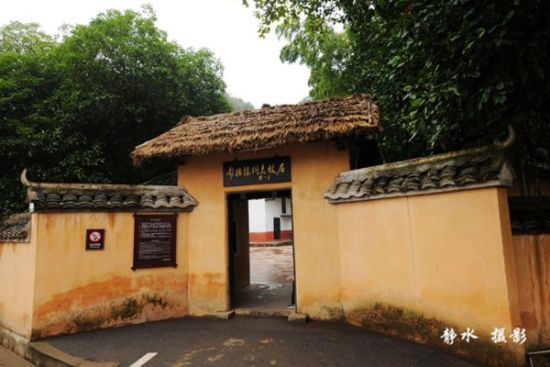
Xiangtan Pengdehuai Guju.
Visitors to the site can immerse themselves in the rich history of the region while gaining insights into the life of a man who stood at the forefront of major historical events in 20th-century China. The Xiangtan Pengdehuai Guju not only serves as a reminder of the past but also continues to inspire future generations with its stories of bravery, leadership, and dedication to the nation.
Main Highlights: What to See at Xiangtan Pengdehuai Guju
Xiangtan Pengdehuai Guju, the former residence and memorial hall of General Peng Dehuai, is a significant historical site located in Hunan Province, China. This destination offers a profound glimpse into the life and legacy of one of China’s most esteemed military leaders.
Visitors will first be captivated by the architectural charm of the residence, which dates back to 1925. It exemplifies the typical Jiangnan style of traditional residential buildings, characterized by its elegant grey-tiled roofs, whitewashed walls, and intricate wooden windows. The surrounding landscape enhances the serene ambiance, making it a perfect spot for reflection on Peng Dehuai’s contributions to the nation.
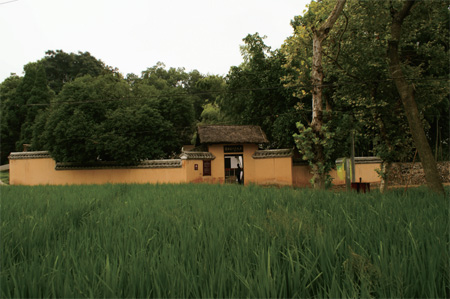
Xiangtan Pengdehuai Guju.
The memorial hall, situated just a short walk from the residence, features a traditional courtyard layout, comprising four major exhibition halls. As you enter, you are greeted by a spacious octagonal foyer adorned with impressive red relief sculptures depicting key battles from the Chinese Civil War and the Korean War. A striking bust of Peng Dehuai stands prominently, symbolizing his heroic persona. The artistic displays encapsulate his valor and dedication to the revolutionary cause, offering visitors an immersive experience through over 300 photographs and various artifacts that narrate his life story.
Notably, the memorial hall is not only a tribute to Peng Dehuai but also a cultural hub that presents the rich history of the region. It is free to enter, allowing everyone to appreciate the artistic and historical significance without financial barriers. The recommended duration for a visit is approximately 30 minutes to an hour, giving ample time to absorb the exhibits and the serene environment.
For those looking to extend their exploration, the surrounding area boasts other attractions, including the scenic Wushi Mountain, where visitors can enjoy nature walks and picturesque views. The nearby restaurants and local eateries also offer a taste of Hunan cuisine, making it a perfect spot for a full day of cultural immersion.
Overall, a visit to Xiangtan Pengdehuai Guju is not just an educational experience but a journey into the heart of China’s revolutionary history, providing a deeper understanding of the values and struggles that shaped the nation.
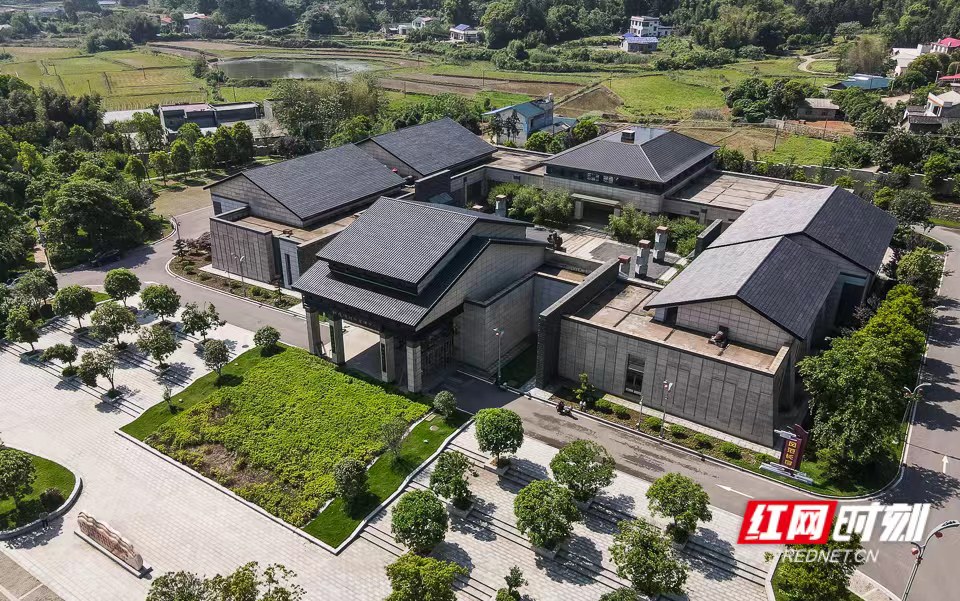
Xiangtan Pengdehuai Guju.
Planning Your Visit: A Practical Guide
Visiting Xiangtan Pengdehuai Guju (彭德怀故居) offers a unique glimpse into the life and legacy of one of China’s prominent military leaders, Peng Dehuai. Here’s a practical guide to help you make the most of your visit.
Opening Hours
The Peng Dehuai Memorial Hall and his former residence are open to the public from Tuesday to Sunday, 9:00 AM to 5:00 PM. Note that the last entry is allowed until 4:30 PM. The sites are closed on Mondays, so plan your visit accordingly.
Admission
Entrance to both the memorial hall and the former residence is free, making it accessible for all visitors. However, it’s recommended to arrive early to avoid crowds and to fully appreciate the exhibitions.
Getting There
Xiangtan is well connected by road. The main routes include National Highways 107 and 320, with numerous access points to expressways like the Suirui and Jingzhu. If you’re relying on public transport, local buses and taxis are readily available, and it’s advisable to confirm routes in advance as they may vary.
What to Expect
-
Architecture: The former residence, built in 1925, features a traditional Jiangnan-style design, characterized by its brick and wood construction, grey-tiled roof, and whitewashed walls. The layout reflects the cultural heritage of the region.
-
Exhibits: The memorial hall is divided into four main sections, showcasing approximately 300 historical photos and artifacts that narrate Peng Dehuai’s life and contributions. The main hall features impressive sculptures depicting significant events in his military career, including the Korean War.
-
Duration of Visit: Allocate about 30 minutes to an hour for a thorough exploration of both sites. This allows you to appreciate the exhibits and take in the tranquil surroundings.
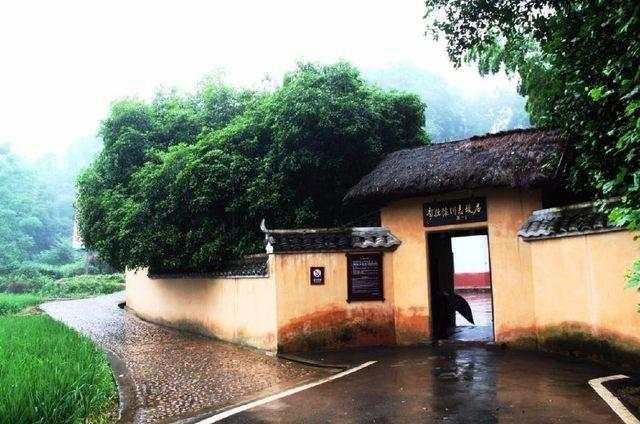
Xiangtan Pengdehuai Guju.
Nearby Attractions
While in the area, consider visiting:
– Wushi Scenic Area: Just a short walk from the memorial, this park offers beautiful natural scenery and recreational opportunities.
– Zhou Xiaozhou Former Residence: A historical site dedicated to another revolutionary figure, providing further insights into the region’s rich history.
Facilities and Services
- Visitor Center: Before entering, visitors must pass through a security check at the visitor center, where tickets are issued. Be prepared for temperature checks and to wear a mask.
- Guided Tours: While self-guided exploration is encouraged, guided tours may be available for those seeking more in-depth information on the exhibits.
Tips for Visitors
- Language: English signage may be limited. Having a translation app can be helpful.
- Photography: Check the rules regarding photography, as some areas may have restrictions.
- Local Cuisine: After your visit, explore local dining options to sample Xiangtan’s famous dishes, such as dengxin cake, a traditional snack that is a must-try.
Conclusion
Visiting Xiangtan Pengdehuai Guju is not just an educational experience but also a chance to reflect on China’s revolutionary history. With thoughtful planning, your visit can be both enjoyable and enriching.
Tickets, Hours, and Booking
Visiting the Xiangtan Pengdehuai Guju (彭德怀故居) is a fascinating experience, and it’s worth noting that entry to this historical site is free of charge. The memorial hall and the former residence open their doors to visitors from Tuesday to Sunday, operating between 9:00 AM and 5:00 PM. Please be aware that the last admission is at 4:30 PM, so plan your visit accordingly to make the most of your time there.
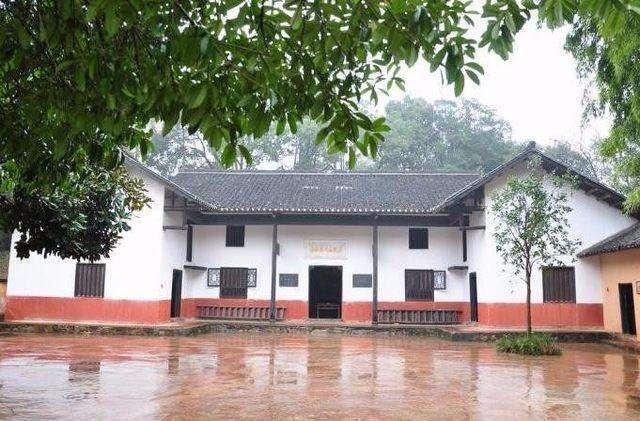
Xiangtan Pengdehuai Guju.
As you prepare for your visit, it’s advisable to allocate about half an hour to an hour to explore the site fully. Upon arrival, visitors will need to go through a brief security check and ticket registration at the visitor center, where identification is required to receive your entry ticket, even though there is no fee.
The complex is designed in a traditional courtyard style, showcasing both the architectural beauty and historical significance of the location. While no fees are required, it’s recommended to make arrangements in advance if you’re traveling with a group or during peak seasons to ensure a smooth experience.
In summary, the Xiangtan Pengdehuai Guju offers a unique opportunity to delve into the legacy of a prominent Chinese figure without any cost, making it an accessible and enriching destination for history enthusiasts and casual visitors alike.
How to Get There
When planning your visit to the Xiangtan Pengdehuai Guju (彭德怀故居), understanding the transportation options available can enhance your experience and ensure a smooth journey to this historically significant site.
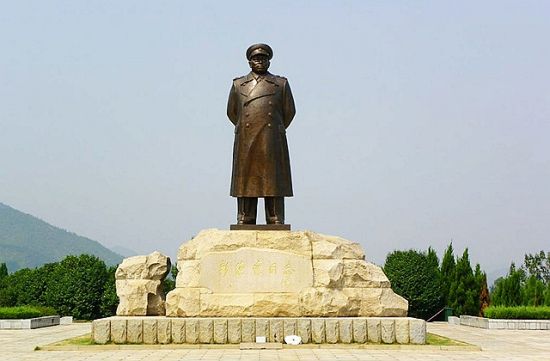
Xiangtan Pengdehuai Guju.
Getting to Xiangtan Pengdehuai Guju
By Air:
The nearest major airport is Changsha Huanghua International Airport (CSX), located approximately 60 kilometers from Xiangtan. From the airport, you can hire a taxi or utilize ride-sharing apps for a direct trip to Xiangtan. Alternatively, you can take an airport bus to Changsha city center and then transfer to a train or bus heading to Xiangtan.
By Train:
Xiangtan is well-connected by rail, making train travel a convenient option. Regular services run from major cities like Changsha, Guangzhou, and Beijing to Xiangtan Railway Station. From the station, local taxis or buses can take you to the Pengdehuai Guju, which is about a 15-20 minute ride away.
By Bus:
For those preferring long-distance buses, Xiangtan has a comprehensive bus network. Buses from cities such as Changsha, Zhuzhou, and Hengdong arrive frequently at Xiangtan Bus Station. From the bus station, you can take a local bus or taxi to reach the former residence.
By Car:
If you are driving, Xiangtan is accessible via several major highways, including the G107 and G320 National Highways. The roads are well-maintained, and signage is clear, making it easy to navigate. There is parking available near the Pengdehuai Guju for your convenience.
Local Transportation:
Once in Xiangtan, local public transportation options include buses and taxis. The city’s bus system covers various routes that can bring you close to the Pengdehuai Guju. Taxis are readily available and are a convenient way to get around; they are typically affordable and can be hailed on the street or booked via phone.
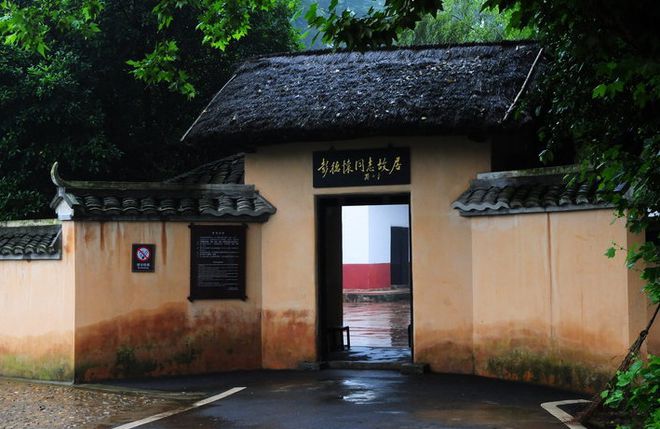
Xiangtan Pengdehuai Guju.
Accessibility at the Site
The Xiangtan Pengdehuai Guju is located in Wushi Village, within easy reach of local transport hubs. The site itself is accessible, accommodating visitors with mobility challenges. However, it’s advisable to check in advance for any specific accessibility services or requirements.
Tips for Travelers
- Plan Ahead: Given the varying schedules of public transport, plan your visit accordingly to ensure you have ample time to explore.
- Language: While many locals understand basic English, having a translation app or phrasebook can be helpful.
- Peak Times: Avoid peak travel times, especially during weekends and holidays, when transportation may be busier.
By utilizing these transportation options, you can easily navigate your way to the Xiangtan Pengdehuai Guju and enjoy a meaningful visit to this historical site.
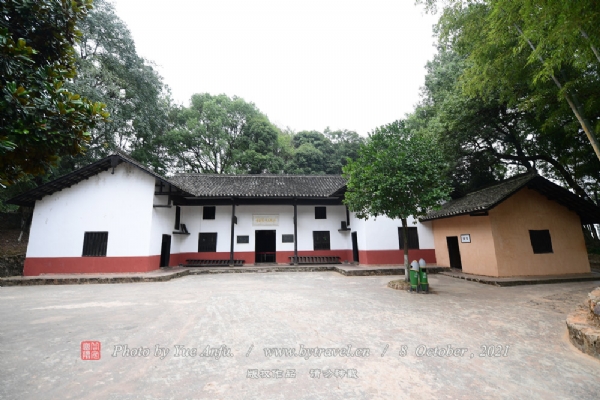
Xiangtan Pengdehuai Guju.
Local Cuisine and Accommodation
When visiting Xiangtan Pengdehuai Guju, visitors can indulge in delightful local cuisine while enjoying comfortable accommodations nearby. Here’s a curated selection of both food and lodging options to enhance your experience.
Culinary Delights
1. Qingshanqiao Restaurant
Located approximately 32 kilometers from the memorial site, this restaurant specializes in traditional Hunan cuisine. Diners can expect to enjoy a variety of spicy and fragrant dishes that reflect the region’s culinary heritage.
2. Hualaisi Fast Food (Dapeng Road Branch)
For those looking for a quick but satisfying meal, this fast-food outlet offers a selection of local favorites. It’s a great stop for travelers on the go, situated just 32.4 kilometers from the memorial.
3. Authentic Liuyang Steamed Dishes
Also around 32.4 kilometers away, this eatery is famous for its steamed dishes that showcase the unique flavors of Hunan cuisine. The menu features a range of options, perfect for both casual diners and those seeking a hearty meal.
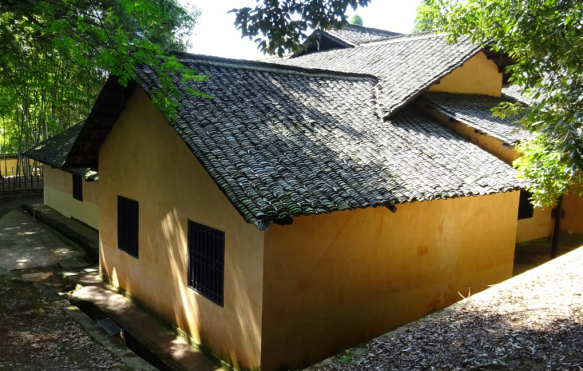
Xiangtan Pengdehuai Guju.
Accommodation Options
1. Wyndham Hotel Xiangtan (Zhengwu Service Center Branch)
This modern hotel boasts a high rating of 4.6, offering comfortable rooms and a range of amenities. It’s an excellent choice for travelers seeking a blend of luxury and convenience.
2. Yipin International Hotel
Rating at 4.7, this hotel provides a contemporary stay with professional services. Located near the town center, it’s a great base for exploring the area.
3. Yishang Hotel (Yisuh River Branch)
With a rating of 4.7, this hotel offers budget-friendly accommodations without compromising comfort. It’s well-situated for those wishing to explore Xiangtan and its surrounding attractions.
4. Boya Mingzhi Hotel (Yisuh River Branch)
Another highly rated option at 4.6, this hotel combines modern comforts with welcoming service, making it suitable for both leisure and business travelers.
Local Snacks to Try
While exploring the area, don’t miss trying Dengxin Cake, a traditional snack that resembles a candle wick. This unique treat is not only visually appealing but also offers a delightful blend of sweet and spicy flavors.
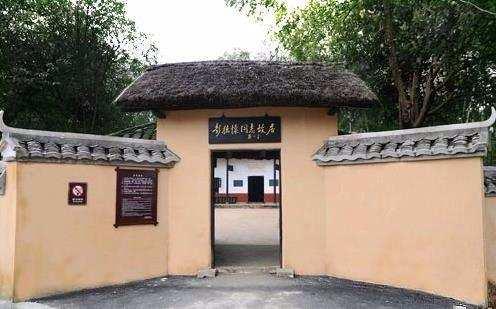
Xiangtan Pengdehuai Guju.
These dining and accommodation choices provide visitors with a taste of local culture and comfort while exploring the historical significance of Xiangtan Pengdehuai Guju. Enjoy your culinary journey and restful nights in this vibrant region!
Frequently Asked Questions
- What are the opening hours for Xiangtan Pengdehuai Guju?
-
The memorial and the former residence are open from Tuesday to Sunday, 9:00 AM to 5:00 PM. Please note that the last entry is at 4:30 PM, and the site is closed on Mondays.
-
Is there an admission fee to visit the memorial and residence?
-
Entrance to both the Xiangtan Pengdehuai Guju and its memorial hall is free of charge.
-
How long should I plan to spend at the Xiangtan Pengdehuai Guju?
-
Visitors typically spend about 30 minutes to 1 hour exploring both the memorial and the former residence.
-
What is the best way to get to Xiangtan Pengdehuai Guju?
-
The site is easily accessible by road, with multiple routes connecting to national highways. It is recommended to use a private vehicle or local transport services for convenience.
-
Are there any facilities available for visitors?
-
Basic visitor facilities such as restrooms and information desks are available on-site. It is advisable to check for any additional amenities or services at the visitor center upon arrival.
-
Can I take photographs inside the memorial and the residence?
-
Photography is generally allowed in the outdoor areas and some parts of the memorial. However, please respect any posted signs regarding photography restrictions inside exhibition spaces.
-
Are guided tours available?
-
While guided tours may not be officially offered, informational displays and signage in English can help provide context and details during your visit. Consider hiring a local guide for a more in-depth experience.
-
What nearby attractions should I consider visiting?
- After visiting Xiangtan Pengdehuai Guju, you can explore the nearby Pengdehuai Memorial Hall, the scenic Wushi Tourist Area, and other historical sites dedicated to significant figures in Chinese history.
Final Thoughts on Your Trip
Visiting the Xiangtan Pengdehuai Guju and its adjacent memorial hall offers a profound glimpse into the life and legacy of one of China’s pivotal military leaders. The carefully preserved residence and thoughtfully curated exhibits not only celebrate Peng Dehuai’s storied past but also serve as a testament to the resilience of the human spirit during tumultuous times.
As you stroll through the traditional courtyard, adorned with rich cultural motifs, you can almost feel the echoes of history resonating in the walls. The experience is enhanced by the stunning backdrop of the surrounding mountains, blending natural beauty with historical significance.
A trip to this site is more than just an educational endeavor; it is a chance to reflect on the values of courage and dedication that shaped modern China. Whether you are a history enthusiast or a casual traveler, the Xiangtan Pengdehuai Guju promises to leave a lasting impression, inspiring you with stories of heroism and the unwavering bond between a leader and his people. Embrace this opportunity to connect with the past, and let it fuel your appreciation for the rich tapestry of human experience.
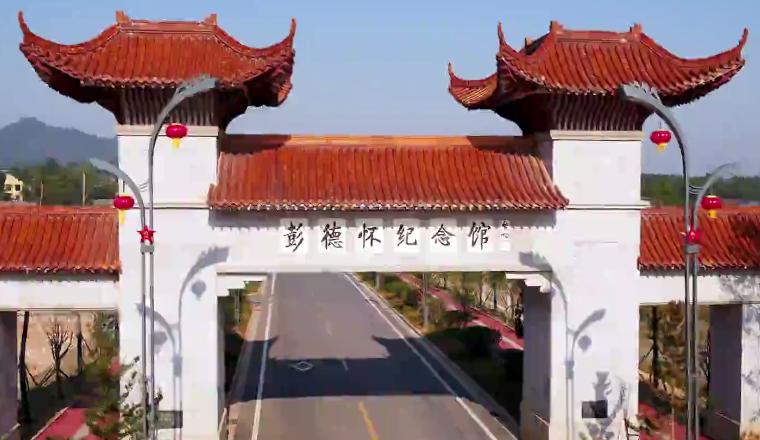
Xiangtan Pengdehuai Guju.
